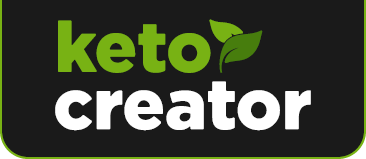The ketogenic (keto) diet is a high-fat, low-carb eating plan that shifts the body into ketosis, a state where fat is burned for energy instead of carbohydrates. While the diet offers many benefits, it can sometimes lead to nutrient deficiencies due to restricted food choices. This raises the question: Do you need supplements on the keto diet? While not always necessary, certain supplements can help support overall health, prevent deficiencies, and optimize the benefits of keto.
1. Electrolytes: Essential for Avoiding Keto Flu
When you reduce carbohydrate intake, the body sheds excess water and electrolytes, leading to symptoms of the “keto flu,” such as fatigue, headaches, and muscle cramps. Supplementing with key electrolytes—sodium, potassium, and magnesium—can help prevent these issues.
- Sodium: Found in salt, broth, and electrolyte drinks.
- Potassium: Found in avocados and leafy greens, but supplementation may be needed.
- Magnesium: Helps with muscle function and sleep; can be obtained from nuts and seeds or taken as a supplement.
2. Omega-3 Fatty Acids: Supporting Heart and Brain Health
The keto diet emphasizes fat intake, but not all fats are created equal. Many people consume too many inflammatory omega-6 fats from processed foods while lacking omega-3s, which support heart and brain health. Taking fish oil supplements or consuming fatty fish like salmon and sardines can help balance omega-3 to omega-6 ratios.
3. Fiber: Supporting Digestion and Gut Health
Since keto limits high-carb fiber sources like whole grains and legumes, some individuals experience constipation. To support digestion, supplementing with psyllium husk, chia seeds, or flaxseeds can help maintain healthy bowel movements.
4. Vitamin D: Crucial for Immunity and Bone Health
Vitamin D is essential for calcium absorption, immune function, and overall health. Many people are deficient, especially if they have limited sun exposure. Since keto naturally includes fewer vitamin D-rich foods, supplementing with vitamin D3 can be beneficial.
5. Exogenous Ketones and MCT Oil: Boosting Ketosis
Exogenous ketones are marketed as a way to enhance ketosis, though they are not necessary for most people following a strict keto diet. However, MCT (medium-chain triglyceride) oil, derived from coconut oil, can be useful for providing quick energy and supporting ketone production.
6. Multivitamins: Filling Nutrient Gaps
Since keto limits certain fruits, vegetables, and grains, a high-quality multivitamin can help fill in any nutritional gaps. Look for one that includes B vitamins, zinc, selenium, and vitamin C to ensure balanced nutrition.
Conclusion
While supplements are not always required on the keto diet, they can help prevent deficiencies and optimize health. Key supplements to consider include electrolytes, omega-3s, fiber, vitamin D, and MCT oil. As always, consult a healthcare professional before adding supplements to your routine to ensure they fit your individual needs.

